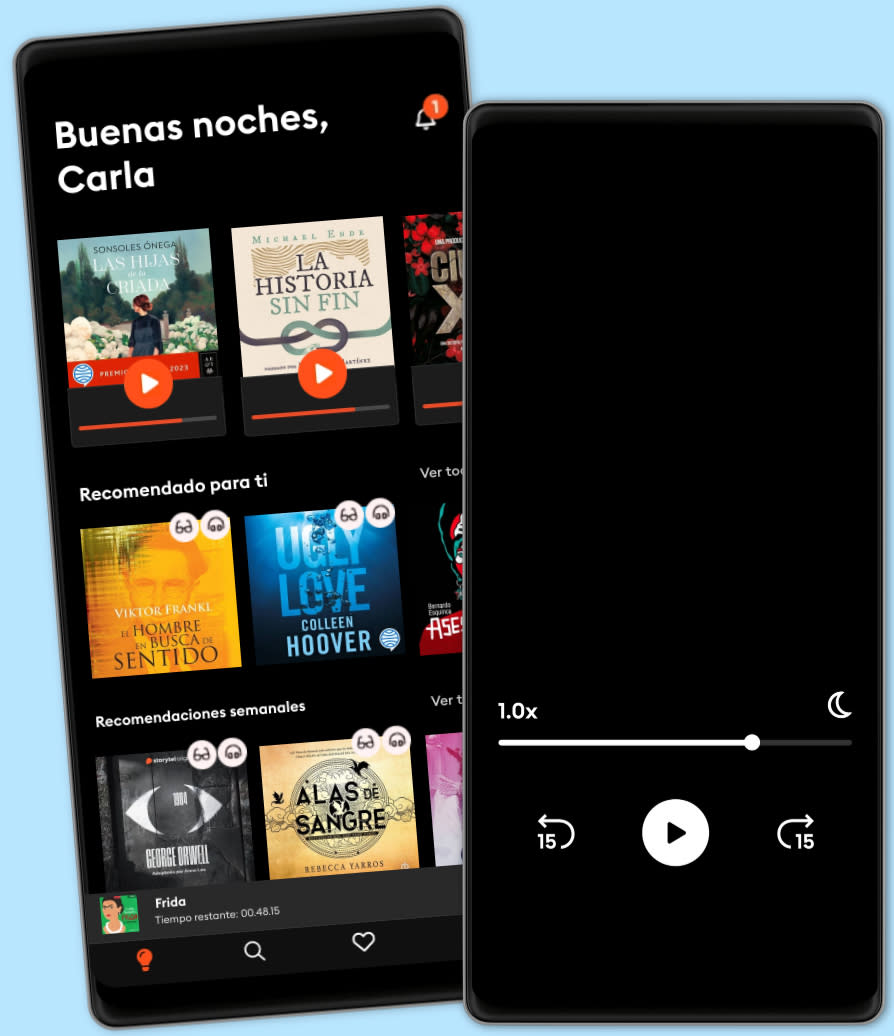Escucha y lee
Descubre un mundo infinito de historias
- Lee y escucha todo lo que quieras
- Más de 500 000 títulos
- Títulos exclusivos + Storytel Originals
- 14 días de prueba gratis, luego $24,900 COP/al mes
- Cancela cuando quieras

Ancient Egypt: Pharaohs, Pyramids, and the Cradle of Civilization
- Por
- Con
- Editorial
- Duración
- 2H 27min
- Idioma
- Inglés
- Format
- Categoría
Historia
The Nile River was the lifeblood of ancient Egypt, shaping its civilization, economy, and culture. Flowing over 4,000 miles from the heart of Africa to the Mediterranean Sea, the river provided a reliable source of water in an otherwise arid landscape. Without the Nile, Egypt as we know it would not have existed.
Each year, the river’s annual flooding deposited nutrient-rich silt onto the surrounding land, creating fertile soil ideal for agriculture. This natural cycle allowed the Egyptians to grow crops such as wheat, barley, and flax, sustaining a thriving population. The predictability of the flooding led to the development of an agricultural calendar, which played a crucial role in the organization of society. Farmers planted their crops after the waters receded and harvested them before the next flood, ensuring a steady food supply.
Beyond agriculture, the Nile was also Egypt’s main highway. With deserts on either side of the river, travel by land was difficult, but the Nile provided an efficient means of transportation. Boats carried goods, people, and even large stone blocks for temple and pyramid construction. Trade flourished as the Egyptians exchanged gold, papyrus, and linen for exotic products from neighboring regions, including spices from the east and cedarwood from Lebanon.
© 2025 Saaa Pub LLC (Audiolibro ): 9798347924462
Fecha de lanzamiento
Audiolibro : 11 de febrero de 2025
Etiquetas
Otros también disfrutaron ...
- Meroitic Kingdom: Forgotten Kingdom of the Nile's Black Pharaohs Rolf Hedger
- History, Culture, Egypt Michael Felix
- The Kingdom of Kush: Nubian Kings and the Black Pharaohs of the Nile Rolf Hedger
- Egyptian Mythology: Classic Myths and Stories from Ancient Egypt Harper van Stalen
- Egyptian Mythology: Gods and Goddesses of Ancient Egypt Harper van Stalen
- Egyptian Mythology: Ancient Gods and Goddesses from Egypt Harper van Stalen
- Israel: A Concise History of a Nation Reborn Daniel Gordis
- Ancient Africa and African Mythology: An Enthralling Guide to Empires, Civilizations, Myths, Fables, and Legends Billy Wellman
- A History of the World Andrew Marr
- Our Oriental Heritage: A History of Civilization in Egypt and the Near East to the Death of Alexander, and in India, China, and Japan from the Beginning to Our Own Day, with Will Durant
- Victoria: Premio Planeta 2024 Paloma Sánchez-Garnica
4.6
- Cómo Hablar Con Cualquier Persona En Cualquier Lugar Y En Cualquier Momento Nina Maxwell
4.3
- Cien años de soledad Gabriel García Márquez
4.6
- Alas de Ónix (Onyx Storm) Rebecca Yarros
4.1
- Alas de Hierro Rebecca Yarros
4.3
- Harry Potter y la piedra filosofal J.K. Rowling
4.8
- La ley de la atracción William Walker Atkinson
4.5
- Cómo hacer que te pasen cosas buenas: Entiende tu cerebro, gestiona tus emociones, mejora tu vida Marian Rojas Estapé
4.5
- Alas de sangre Rebecca Yarros
4.5
- El Poder de Estar Solo: Una Dosis de Motivación Acompañada de Ideas Revolucionarias Para una Vida Mejor BRIAN ALBA
4.2
- Los secretos de la mente millonaria T. Harv Eker
4.3
- Harry Potter y la cámara secreta J.K. Rowling
4.8
- Harry Potter y el prisionero de Azkaban J.K. Rowling
4.9
- La carta a García Elbert Hubbard
4.3
- El Poder de la Gratitud Marc Reklau
4.6
Español
Colombia